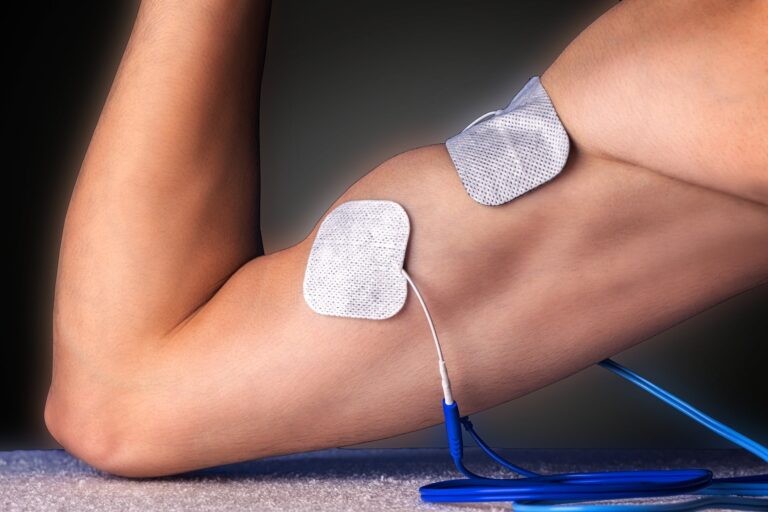Fertility in your 40s presents a blend of challenges and opportunities. As the body ages, natural changes occur that can affect one’s ability to conceive. Women may experience a decrease in egg quantity and quality, and men might see changes in sperm health. However, this period also brings a wealth of experience and stability, which can be advantageous when planning for a family. This article aims to offer practical and empowering tips to enhance fertility for those navigating this pivotal stage in life. By understanding the unique fecundity landscape of the 40s, couples can approach their conception journey with confidence and clarity.
Understanding Fertility Changes in the 40s

As you enter your 40s, your body’s fertility undergoes significant changes. Women often face a reduction in both the quantity and quality of their eggs, while men may experience a decline in sperm motility and health. It’s essential to recognize and understand these changes for effective family planning. By embracing this knowledge, you can tailor your approach to conception to align with your body’s current state. Awareness of these changes is not just about recognizing the ticking biological clock; it’s about understanding its rhythm and using this knowledge for strategic planning. This understanding is crucial for setting realistic expectations and preparing for any challenges that may arise.
Medical Assessments for Fertility
In your 40s, regular medical check-ups and fertility assessments become increasingly important. These include hormonal blood tests to assess ovarian reserve for women, ultrasound scans to check reproductive organs, and semen analysis for men. Understanding your current fecundity status through these assessments is crucial for planning ahead. They provide valuable insights into any potential issues or challenges that may need addressing. Furthermore, these assessments can guide decisions regarding the most suitable fertility treatments or interventions. By staying informed and proactive about your reproductive health, you can better navigate the journey towards conception. If you want to walk down this path you should check out Zora Health.
Importance of a Healthy Diet

Diet plays a pivotal role in fertility, especially in your 40s. A nutrient-rich diet can significantly impact egg and sperm quality. Foods high in antioxidants, such as fruits and vegetables, can help combat age-related decline in fecundity. Including omega-3 fatty acids, found in fish and flaxseeds, can improve hormonal balance and reproductive health. It’s also essential to limit processed foods and excessive caffeine, which can negatively impact fertility. A balanced diet, possibly tailored by a nutritionist, can boost your chances of conceiving and support overall well-being during this journey.
Exercise and Fertility
Exercise is a key factor in boosting fertility, particularly in your 40s. Regular physical activity helps maintain a healthy weight, improves blood flow, and balances hormones—all essential for optimal fecundity. Suitable exercises include low-impact activities like walking, yoga, and swimming, which are particularly beneficial for this age group. However, it’s crucial to avoid overly strenuous workouts, as they can negatively impact fertility. The goal is to find a balance that maintains fitness without adding undue stress to the body. A moderate, consistent exercise routine can significantly enhance your fecundity prospects.
Managing Stress and Its Impact on Fertility

Stress is a known factor that can negatively impact fertility. In your 40s, balancing life responsibilities with the desire to conceive can be particularly stressful. Chronic stress can disrupt hormonal balance and ovulation, making conception more challenging. Techniques such as mindfulness, meditation, and yoga can be effective in managing stress. It’s also beneficial to engage in activities that bring joy and relaxation. Prioritizing mental health and finding effective stress management strategies are essential steps in creating a favorable environment for conception.
Understanding and Tracking Ovulation
Ovulation is a critical component of the conception process. In your 40s, it becomes even more important to understand and accurately track ovulation cycles. Ovulation predictor kits, fertility monitors, and tracking apps can be useful tools. Monitoring basal body temperature and cervical mucus can also provide insights into your ovulation patterns. By understanding your body’s natural fecundity signals and tracking your cycles, you can identify the best times for conception, increasing your chances of success.
Fertility Treatments and Options

Various fertility treatments and technologies are available for those in their 40s. These include in vitro fertilization (IVF), intrauterine insemination (IUI), and fertility drugs to stimulate ovulation. Egg or sperm donation and surrogacy are also options for some couples. Each treatment has its specific considerations and suitability, depending on individual circumstances. Consulting with a fecundity specialist can provide guidance on the best course of action. Understanding these options empowers you to make informed decisions that align with your fertility goals.
The Role of Supplements and Vitamins
Supplements and vitamins can play a supportive role in enhancing fertility. Key nutrients like folic acid, Coenzyme Q10, and vitamins D and E are known to improve egg and sperm health. It’s important to choose high-quality supplements and consult with a healthcare professional to ensure they complement your dietary needs. These supplements should be viewed as part of a broader fertility-enhancing strategy, which includes a healthy diet, regular exercise, and stress management.
Lifestyle Changes for Boosting Fertility

Lifestyle factors significantly impact fertility, particularly in the 40s. Smoking, excessive alcohol consumption, and exposure to environmental toxins can all negatively affect reproductive health. Making positive lifestyle changes, such as quitting smoking and reducing alcohol intake, can greatly improve your chances of conception. Maintaining a healthy body weight and managing any chronic health conditions are also crucial. These lifestyle adjustments not only boost fecundity but also contribute to a healthier pregnancy and baby.
Support Systems and Counseling
Having a strong support system and access to counseling can be invaluable during your fertility journey. Fertility challenges can be emotionally taxing, and having a network of supportive friends, family, or support groups can provide much-needed comfort and advice. Counseling or therapy can also help manage the emotional aspects of fecundity treatments and the stress of trying to conceive. Seeking emotional support is a sign of strength and can make a significant difference in your overall well-being and fertility journey.
Conclusion: Embracing the Journey
In conclusion, embracing your fertility journey in your 40s requires a blend of knowledge, patience, and proactive steps. Remember, each journey is unique and comes with its own set of challenges and triumphs. By incorporating these tips into your life, you can enhance your fecundity and increase your chances of conceiving. Stay positive, informed, and empowered as you navigate this important phase of life. Remember, the journey to parenthood, though sometimes challenging, can also be one of the most rewarding experiences.
Related Posts:
- How Long Does Short-Term Disability Take to Process?…
- What Is a Skilled Worker Sponsorship? Tips for a…
- Preparing for PTE Exam ─ Proven Tips for a…
- How to Reach Minya Konka: 4 Tips for a Successful…
- How to Fix UPnP Not Successful in Xbox? - Detailed Guide
- How Long Does It Take to Get Short-Term Disability?…







